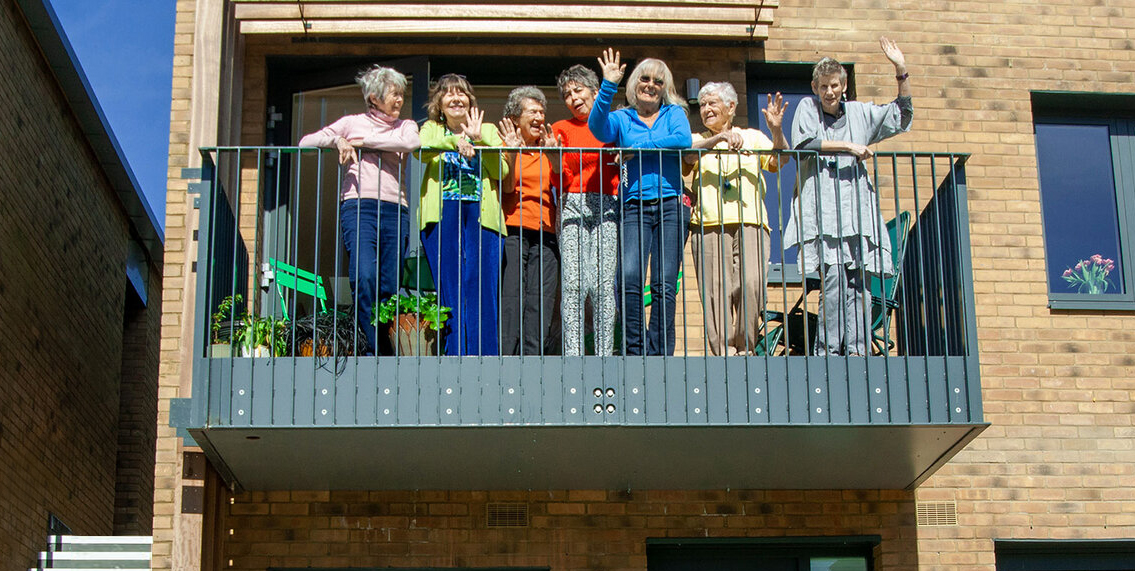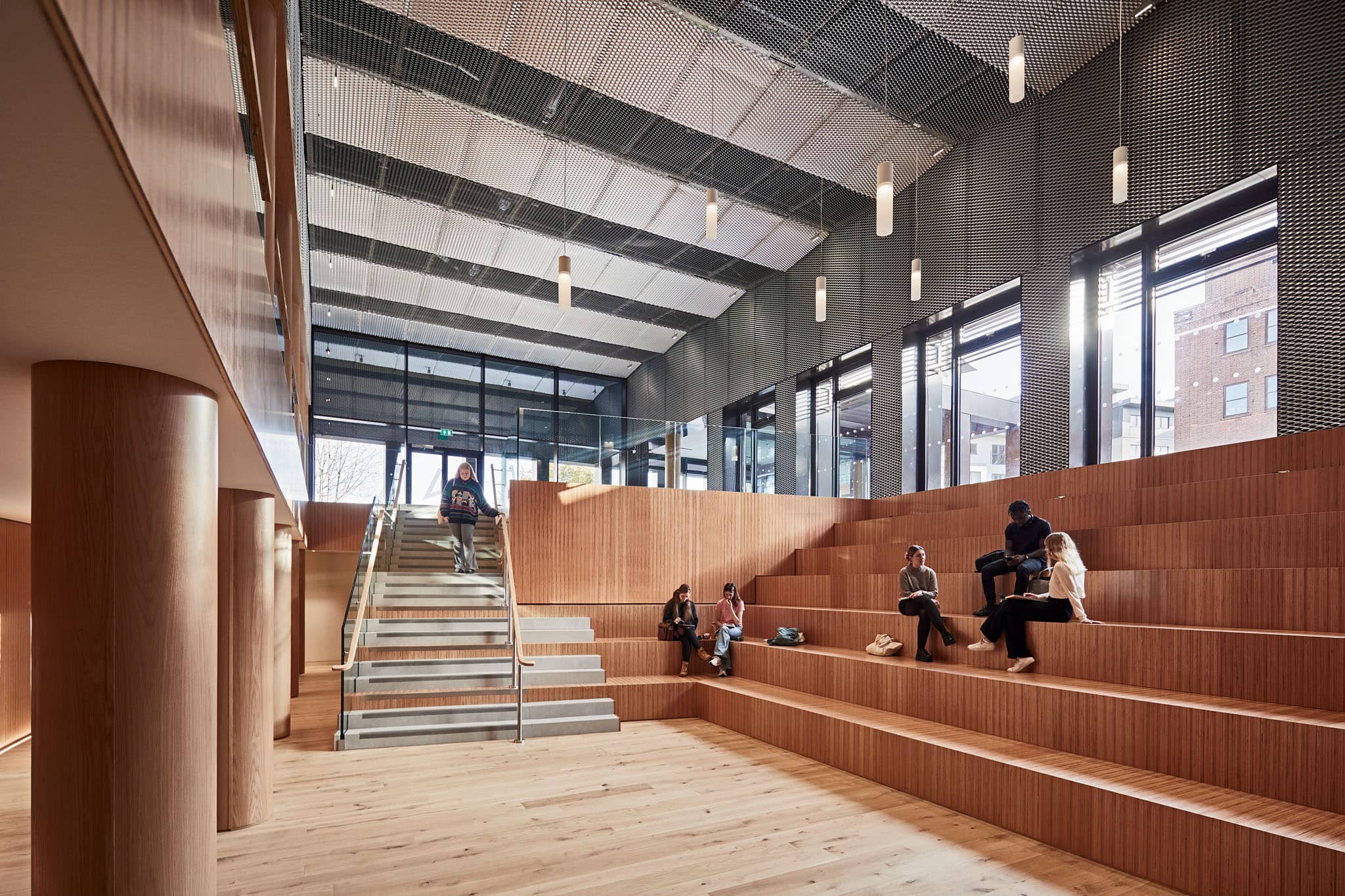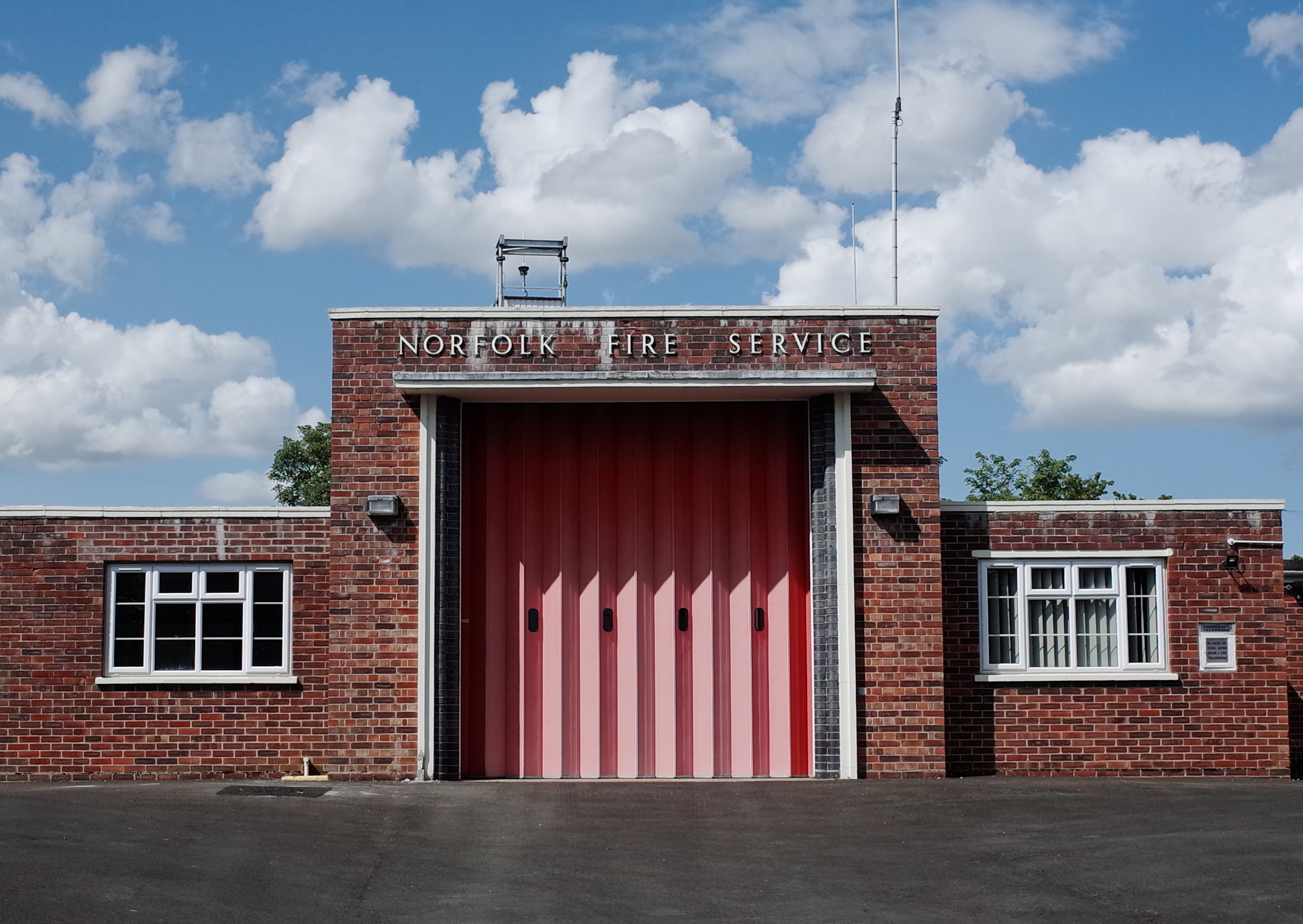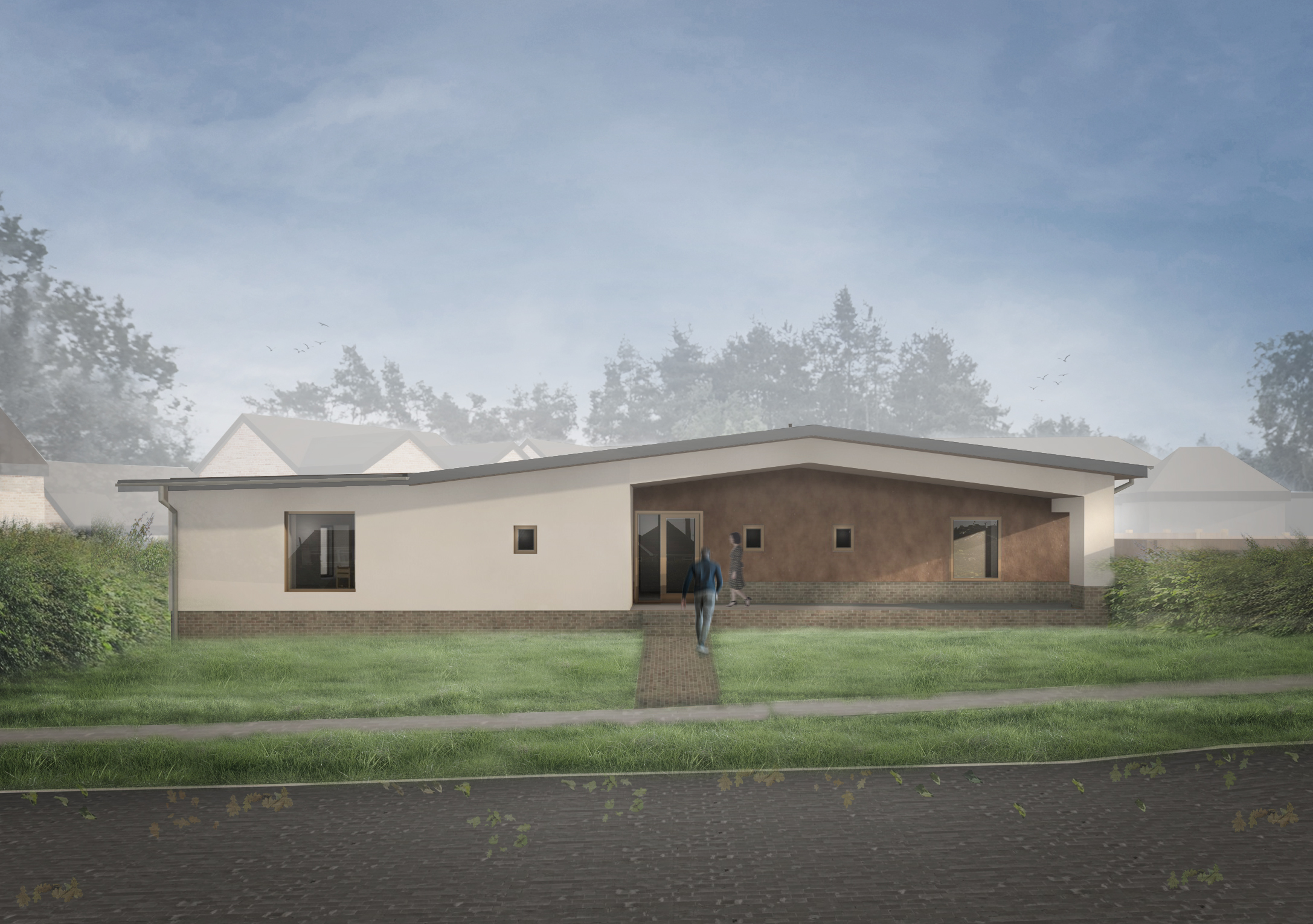
McCarthy & Stone have recently published research which suggests a third of older people in the UK would consider moving house to ‘right-size’ their later-life accommodation, but the lack of suitable alternative housing options remains one of the primary barriers to them doing so. McCarthy & Stone certainly offer an option which may be right for many, but another way forward for some may be ‘co-housing’.
Co-housing is the term used to describe groups of individuals or families working together to commission their own homes. Each individual or family has its own private dwelling but there is usually some shared space, most often in the form of a ‘common house’ – a large space for communal dining, meetings and parties. Many common houses also contain guest accommodation, which means that residents can down-size their own private dwelling but still have room for friends and family to visit and stay. Communal gardens, allotments and workshops also regularly feature in co-housing developments.
Senior Co-Housing
Co-housing is one of the main forms of community-led housing and offers many of the same key advantages over housing built speculatively by developers. For older people, it is probably the attraction of very low running costs and a strong sense of community and support that are key.
The Older Women’s Co-Housing development at New Ground in Barnet (pictured) is one of the most discussed senior co-housing schemes, partly because of its catchy acronym (OWCH!), but also because it was the UK’s first, with residents moving into its 25 flats in 2016. Closer to home and more recently completed is the Cannock Mill Cohousing, whose 30 residents are all aged 50+, are keen to promote ‘active ageing’.
Intergenerational Co-Housing
Co-housing need not be exclusively for older residents, and mixed developments for ‘intergenerational’ living are more common. Marmalade Lane in Cambridge has been covered extensively since it was completed in 2017, and in Norwich the Angel Yard co-housing group is about to submit a planning application for its site on Sussex Street.
A big lesson from all these brilliant projects is that setting up a co-housing group, finding a site and building new homes is not a quick process. It takes most groups 10 years or more. So, if you think co-housing might be the solution to your later life housing needs, don’t put it off… and let us know if we can help!
Further Information on Co-Housing:
The UK Co-Housing Network is a great place to start your research.
The Government is actively supporting all forms of community led housing through a series of knowledge ‘hubs’. In our region it’s Eastern Community Homes.
The Housing Learning & Improving Network (Housing LIN) has some rather more technical pieces specifically on co-housing for older people. The video about OWCH is worth a watching
Written by Matt Wood, Head of Housing


